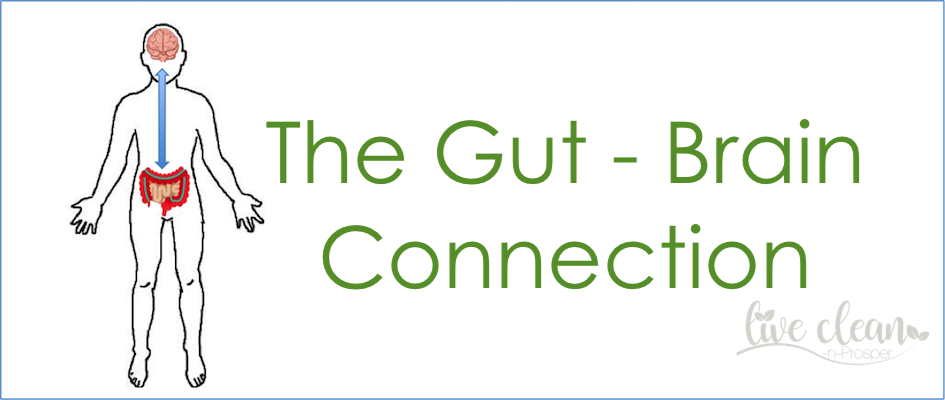Today’s post is about the Gut – Brain connection.
Last week I read an article about studies in the UK and Australia, which found that eating fruit and vegetables makes people happy.
The U.K. study of 45,000 people concluded that eating fruit and vegetables several times a week, generated an increase in life satisfaction.
The Australian study consisted of more than 7000 people. It found a link between a diagnosis of depression and the minimal consumption of fruit and vegetables.
The reason behind these results is the gut microbiome.
I have previously written about different aspects of our gut microbiome in relation to our health. (Red wine and Gut health, Gut health and Strawberries, Smoothies)
Today I will write about the gut connection with the brain and how that can impact on our health. Scott is currently studying this particular subject at the moment, so I have lots of research material at my disposal.
About the microbiome
The human gut microbiome contains resident microorganisms including bacteria, viruses, fungi and protozoa. These have an important role in nutrient and mineral absorption. In synthesis of enzymes, vitamins and amino acids, and production of short-chain fatty acids. They assist with energy extraction from diet, with metabolism and help control local inflammation.
Several studies have shown that the intestinal microbiome are integral in modulating the risk of several chronic diseases.
At the same time, it is now understood that diet plays a significant role in shaping the microbiome. Experimental studies showing an acute change in diet can induce temporary changes within 24 hrs.
These recorded benefits have led to further study in the ability to modify the gut microbiota through diet.
The brain connection
Our brain, being the major part of our body’s central nervous system is always in communication with the gastrointestinal tract, or gut. There is mounting data that gut microbiota is the source of a number of substances which affect regions of the brain.
These regions are involved in the control of emotions, cognition and physical activity.
On the flip side, studies also suggest that overwhelming systemic stress and inflammation can also produce acute changes in the microbiome.
All of this research is telling us that the brain and the gut have a very interdependent relationship.
and then diet…
Studies as early as 1977 showed that diet could effect the composition of the gut microbiome. Since then, hundreds of different studies and experiments have been conducted in this field.
Several diets, including Western, gluten-free, omnivore, vegetarian, vegan and Mediterranean, have been studied for their ability to modulate the gut microbiota.
Across the spectrum of studies, the Mediterranean diet is highly regarded as a healthy balanced diet. Most notable is the high intake of fibre and low glycemic carbohydrates. There is also a relatively greater vegetable intake than animal protein. These are important factors in keeping the gut microbiota balanced, which is critical for a healthy immune system.
The close relationship between diet, the gut microbiome and health, shows how we may improve our overall health by modulating our diet.
Already the gut microbiome has been found to influence the response to cancer immunotherapy. Alterations of gut microbiota have also been associated with treating mood and depressive disorders.
So the takeaway from this research is – eat fruit and vegetables regularly to maintain good gut health and good mental health.
Till the next post,
Live clean n prosper

